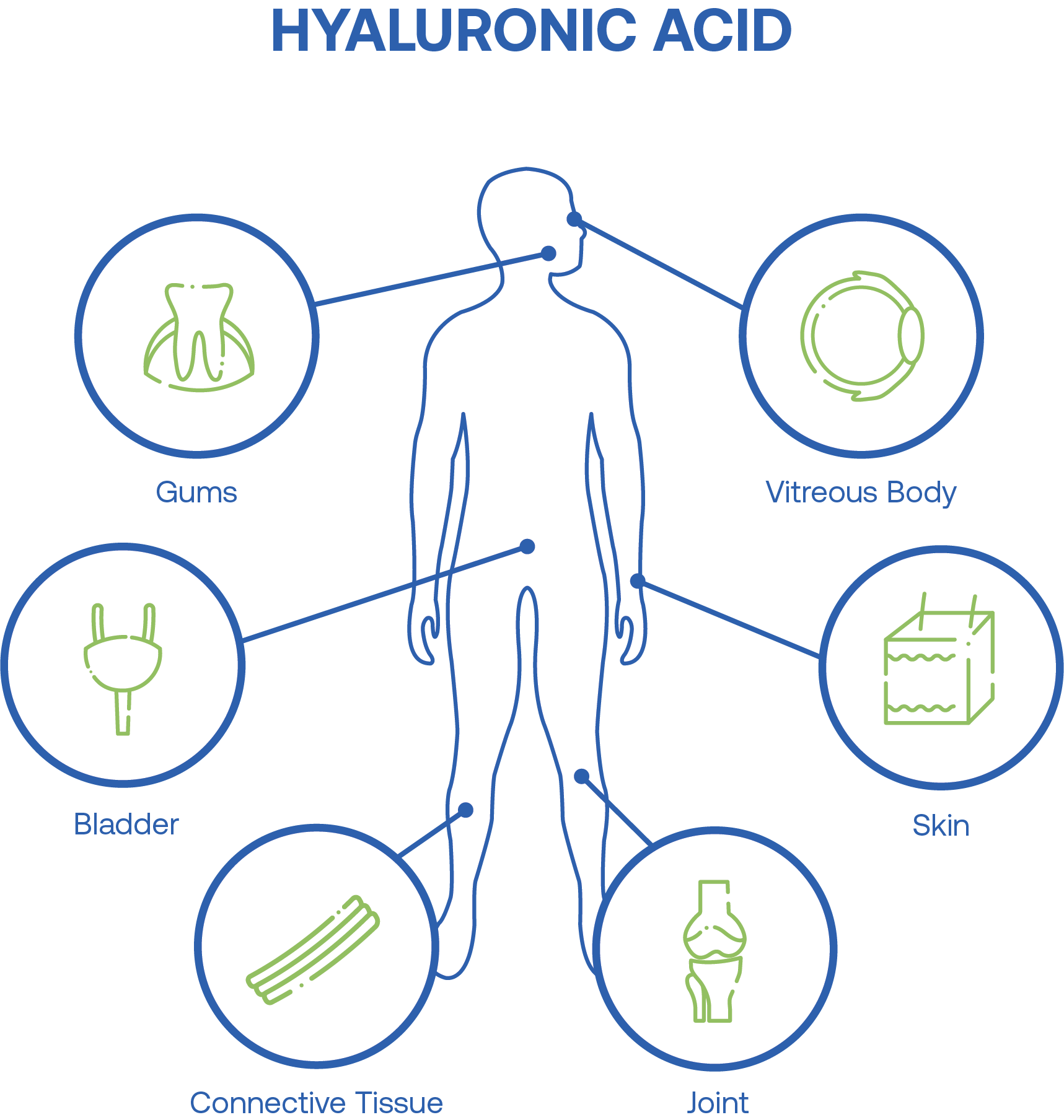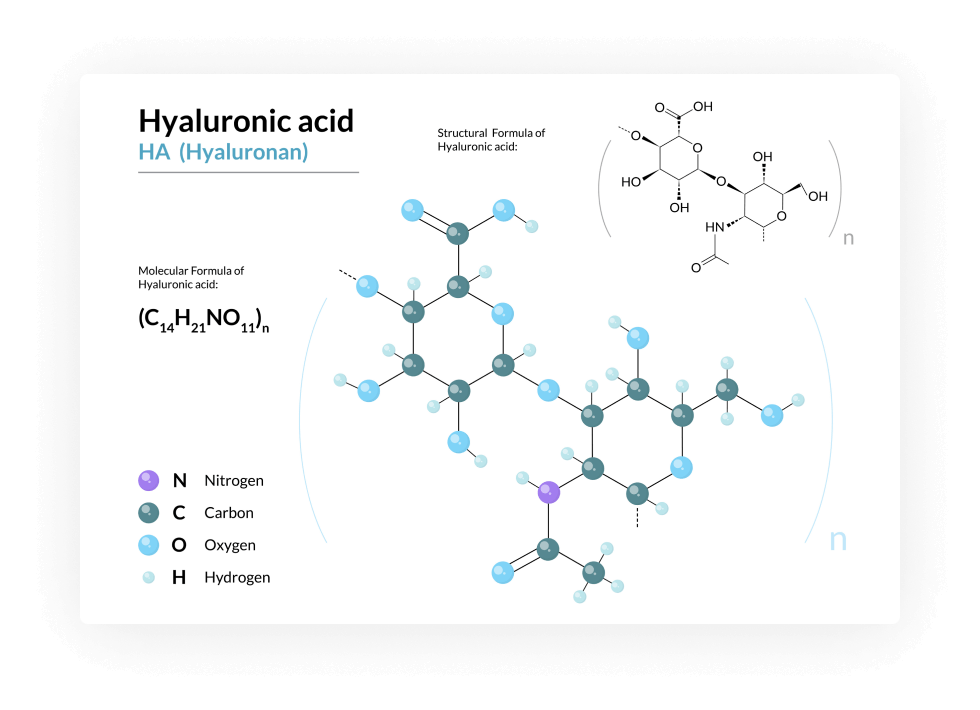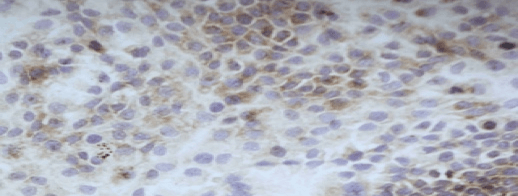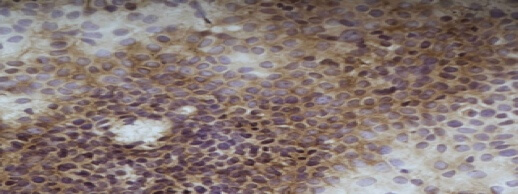
Epidarus
Therapeutics
A research-driven biotechnology company with a focus on the biology of Hyaluronic Acid and its role in aging and disease.

At Epidarus Therapeutics LLC, we are developing a range of products to address conditions in which Hyaluronic Acid metabolism has become dysregulated. Our facilities are located at the Pennsylvania Biotechnology Center in Doylestown, Pennsylvania, where we can avail of the services of a first-rate Biotech Incubator as well as opportunities for fruitful interactions and collaborations with its many excellent resident companies and academics.
Hyaluronic Acid is known as the “Magic Glue” that forms an important part of the matrix surrounding cells and tissues throughout the body. In healthy tissues and cells, it is continuously synthesized and degraded in a tightly regulated cycle. However, in many chronic diseases and normal aging this balance is disrupted, and we see the excess accumulation of fragments of degraded Hyaluronic Acid.
Epidarus research has focused on identifying safe, effective and highly active natural product inhibitors of Hyaluronic Acid degradation to restore the equilibrium to that seen in healthy tissues. Our active botanicals have applications in a range of human and animal diseases, including Osteoarthritis, Inflammatory Diseases of Skin and Bladder and to reverse some of the inflammation-mediated conditions seen in aged individuals. We currently have patents pending in the USA and Europe to protect our discoveries.
Hyaluronic Acid is known as the “Magic Glue” that forms an important part of the matrix surrounding cells and tissues throughout the body. In healthy tissues and cells, it is continuously synthesized and degraded in a tightly regulated cycle. However, in many chronic diseases and normal aging this balance is disrupted, and we see the excess accumulation of fragments of degraded Hyaluronic Acid.
Epidarus research has focused on identifying safe, effective and highly active natural product inhibitors of Hyaluronic Acid degradation to restore the equilibrium to that seen in healthy tissues. Our active botanicals have applications in a range of human and animal diseases, including Osteoarthritis, Inflammatory Diseases of Skin and Bladder and to reverse some of the inflammation-mediated conditions seen in aged individuals. We currently have patents pending in the USA and Europe to protect our discoveries.
Hyaluronic Acid
Intact Hyaluronic Acid (HA)
Hyaluronic acid (HA) is a naturally occurring glycosaminoglycan that plays a crucial role in maintaining tissue hydration and lubrication. It is a long, unbranched polysaccharide composed of repeating disaccharide units of glucuronic acid and N-acetylglucosamine. Its unique chemical and physical properties enable it to absorb and retain water molecules, making it an excellent moisturizer and lubricant for various tissues such as skin, eyes, and joints. HA is synthesized by cells in the body and degraded by enzymes such as hyaluronidases. Its levels decrease with age and contribute to the development of wrinkles and joint problems. Therefore, it is used in cosmetic and medical applications to restore tissue hydration and function.
See our current applications

Hyaluronic Acid
Biology

Intact Hyaluronic Acid, (also known as Hyaluronan or HA) consists of long chains of repeating N-Acetyl-glucosamine and Glucuronic Acid molecules. HA chains can be up to 25,000 units long and it can bind up to 1,000 times its own mass of water to form a viscous gel that supports, nourishes and protects cells, tissues and joints. It is synthesized by a group of membrane-embedded enzymes, Hyaluronate Synthases (HAS1, HAS2 and HAS3) and degraded by Hyaluronidases (HYAL1, HYAL2, HYAL3 and a Sperm-associated Hyaluronidase called SPAM1). Both HYAL1 and HYAL2 play important roles in cellular regulation of HA metabolism. HYAL2 is a membrane-linked enzyme, while HYAL1 is found intracellularly in specialized lysosomes and is secreted as a soluble enzyme which is found in blood and urine. HYAL1 is also secreted at high levels by tumor cells and is an important mediator of tumor metastasis.
HA is a ubiquitous molecule, found in the extracellular matrix surrounding almost all cells. It is seen in very high concentrations in tissues such as skin, joints and in the eye.
HA is a ubiquitous molecule, found in the extracellular matrix surrounding almost all cells. It is seen in very high concentrations in tissues such as skin, joints and in the eye.

Epidarus
Therapeutics
Epidarus Therapeutics is a company that specializes in plant-based therapeutics, with a focus on isolating natural compounds that regulate the breakdown of hyaluronic acid in the body. Hyaluronic acid is a crucial component of the extracellular matrix in various tissues, including the skin, cartilage, and synovial fluid. Epidarus Therapeutics' innovative approach to plant-based research has the potential to improve the health and well-being of people suffering from conditions such as Rosacea.
See our research

Damage-associated Molecular Patterns (DAMPS)
In addition to its structural roles, HA serves as a sophisticated information system, directing new blood vessel growth, cell movement and recruitment of immune cells to damaged tissues. The beneficial properties of HA are highly dependent on chain length and on maintenance of a delicate balance between HA synthesis and its degradation by Hyaluronidases. Long chains of intact High Molecular Weight HA (HMW-HA) are immunosuppressive and maintain normal cell and tissue metabolism. However, small Low Molecular Weight HA (LMW-HA) fragments, generated by Hyaluronidases act as Damage Associated Molecular Patterns (DAMPS). They are highly angiogenic, immunostimulatory and inflammatory.
DAMPS are molecular danger signals that communicate to the innate immune system by interacting with pattern recognition receptors. They form an important component of the surveillance system through which cells and tissues can activate host responses to damaged or dying cells or to infection. Small HA oligosaccharides (generally 4–16 sugar units) are powerful activators of cells of the innate immune system, such as, dendritic cells, macrophages and mast cells.
Excessive production of LMW-HA, particularly by action of the Hyaluronidase enzyme, HYAL1, is seen in a host of diseases and is also a hallmark of aging. These fragments generate the constant, inappropriate immune stimulation seen in senescent skin, osteoarthritic joints and chronic inflammatory conditions like Rosacea and Bladder Interstitial Cystitis.
At Epidarus, we believe that by targeting HYAL-1, we can intervene in this cycle to treat chronic inflammation and to reverse the age-related loss of structural HA in the skin.
DAMPS are molecular danger signals that communicate to the innate immune system by interacting with pattern recognition receptors. They form an important component of the surveillance system through which cells and tissues can activate host responses to damaged or dying cells or to infection. Small HA oligosaccharides (generally 4–16 sugar units) are powerful activators of cells of the innate immune system, such as, dendritic cells, macrophages and mast cells.
Excessive production of LMW-HA, particularly by action of the Hyaluronidase enzyme, HYAL1, is seen in a host of diseases and is also a hallmark of aging. These fragments generate the constant, inappropriate immune stimulation seen in senescent skin, osteoarthritic joints and chronic inflammatory conditions like Rosacea and Bladder Interstitial Cystitis.
At Epidarus, we believe that by targeting HYAL-1, we can intervene in this cycle to treat chronic inflammation and to reverse the age-related loss of structural HA in the skin.
Epidarus Therapeutics' Ready for Market
Epidarus Therapeutics has developed HA-based products derived from plant sources, using a sustainable process to extract HA without the use of animal-derived materials or synthetic compounds. The plant-based HA has similar properties to the naturally occurring HA in the body, making it a safe and effective ingredient for various applications.
Epidarus Therapeutics' plant-based HA products offer a natural, sustainable, and effective solution for various applications, with the potential to improve the health and well-being of people and the environment. The company's commitment to quality and sustainability underscores its dedication to developing innovative and responsible products that benefit people and the planet.
Epidarus Therapeutics' plant-based HA products offer a natural, sustainable, and effective solution for various applications, with the potential to improve the health and well-being of people and the environment. The company's commitment to quality and sustainability underscores its dedication to developing innovative and responsible products that benefit people and the planet.


Before
after
Currenlty Testing Appliations In:
Rosesha
UTI
Skin strengthening
A hyaluronic acid regulator can be used to address various health concerns, including rosacea, urinary tract infections, and skin strengthening. By regulating the breakdown of hyaluronic acid, these natural compounds can help promote healthy skin, joints, and other tissues throughout the body.